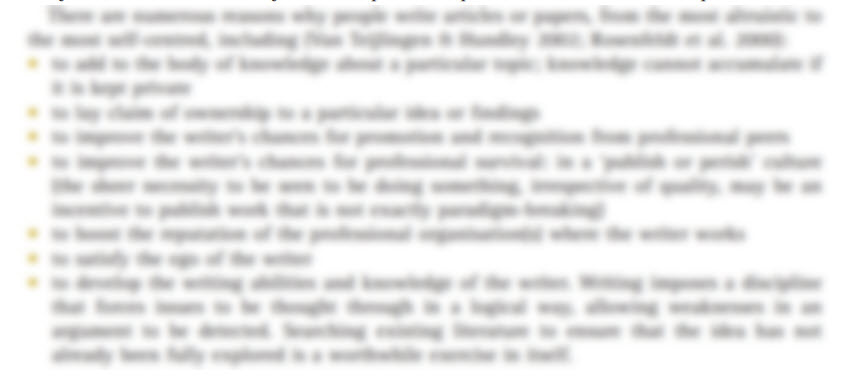What is science writing?
Although this question appears straightforward, there are common misconceptions about what constitutes science writing. Some students attending my writing workshops initially assume that science writing is restricted to academic writing to produce theses or research papers. Some assume science writing is communicating scientific concepts in plain English to a wide audience, while others assume that their consultancy report is not science writing. I teach that the term is not restrictive. At its simplest and broadest definition, science writing is writing about science.
There are different types of science writing
Science writing takes different forms, according to the topic, the purpose of the author and who the document is designed for. Science writing can create a thesis, a research paper, a report, an email, a conference talk, client criteria, project deliverables, a proposal, a funding application, a blogpost, a magazine or news article, a brochure, a fact sheet or a video script. A scientist publishing a research paper will write for their peers, a journalist writing for a popular science magazine will write for people who are fascinated by science and technology while a technician writing a report may write for people who need to know about a new process, methodology or technique.
Science writing is writing about science
The key feature of all types of science writing is that the topic under discussion is a scientific topic: that the information presented has been gathered, analysed and critiqued using accepted scientific methods. This is true whether you are presenting new science (e.g. research papers, theses), reviewing research by others (e.g. literature reviews, desktop reviews), reporting scientific approaches and methods to solve commercial or industry issues (e.g. reports, policy reviews) or writing about the astonishing world of science (e.g. news or magazine article).
Who can write about science?
You don’t need to be a scientist to write about science. You don’t need a degree to do science writing. Anyone can write about science, irrespective of their background or qualifications. Occasionally some people assume they are not science writers if they are not publishing papers, but if the work they write about describes scientific processes, follows scientific procedure or refers to scientific research, then it is science writing.
Science writing includes technical and industry reports
Not all science projects produce empirical date or are investigative. These projects might not be considered ‘research’ as such. Not all research projects are designed to be published by peer-review; some projects are written up and published in-house, online or via government publications, or remain unpublished for confidential reasons. Vast amounts of valid scientific documents are produced in this way.
Some projects are exploratory, information-sourcing or descriptive and do not produce empirical data or follow a classic approach of the scientific method. Therefore, these projects are not necessarily written following the traditional science report structure of AIMRD: Abstract, Introduction, Methods, Results and Discussion. Science projects that investigate commercial issues are often structured according to topic, industry, client and legal requirements. Separate from the PhD and research paper, there are so many different types of scientific documents that it is not possible to summarise their structure here. However, key sections that are common to both science reports and peer-review papers are a summary (Executive Summary in reports and Abstract in paper), an Introduction and Discussion or Conclusion sections.
What is central to all types of science writing
All science writing must refer to information that is based on evidence. Ideally, to peer-reviewed information and data that is published and accessible. Any assumptions, ideas, predictions or suggestions must not be presented as though they are a scientific fact.
© Dr Marina Hurley 2020 www.writingclearscience.com.au
Any suggestions or comments please email info@writingclearscience.com.au
FURTHER READING
- Should we use active or passive voice?
- 10 writing tips for the struggling ESL science writer
- Co-authors should define their roles and responsibilities before they start writing
- How to write when you don’t feel like it
- When to cite and when not to
- Back to basics: science knowledge is gained while information is produced
- How to build and maintain confidence as a writer
- If science was perfect, it wouldn’t be science
- The essentials of science writing: What is science writing?
- 8 steps to writing your first draft
- Two ways to be an inefficient writer
- Work-procrastination: important stuff that keeps us from writing
Find out more about our new online course...
Now includes feedback on your writing Learn more...
SUBSCRIBE to the Writing Clear Science Newsletter
to keep informed about our latest blogs, webinars and writing courses.





